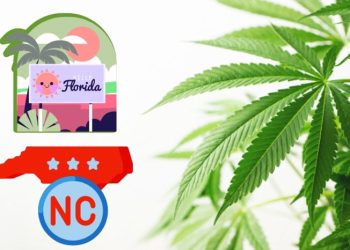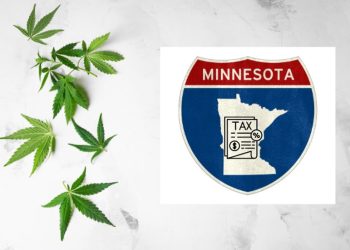Citing a rigorous interpretation of European Union (EU) guidelines, Czech health officials are banning the marketing and sale of CBD and other hemp-based products.
The continuing assault on hemp and its derivatives has spread to Europe. As ,first reported by Hemptoday, food safety authorities in the Czech Republic say they are implementing a ban on all items containing hemp-derived cannabinoids, most notably CBD.
According to the Czech Ministry of Agriculture, the State Agricultural and Food Inspection Authority (SZPI) is putting together a measure to remove all food and dietary supplements containing hemp-based cannabinoid variants from the market. Those items are sold as oils, capsules, tinctures, gummies and other edible products. In addition, the removal also extends to hemp-based topicals and cosmetics. The Ministry did not provide a timetable for when the ban will go into effect.
Hemp industry advocates and stakeholders view the action as extreme, considering the economic impact it could have on the Czech CBD market. Regardless, the Ministry says it based its decision on a strict interpretation of EU rules which designate these products as illegal.
According to those regulations, CBD is categorized as a new or “novel” food that must pass specific safety checks by the European Food Safety Authority (EFSA). The items subject to the new ban have yet to undergo that verification process. However, the Ministry did add that only products containing hemp-derived cannabidiol were subject to the ban. Those containing CBD from other sources, such as hemp resin, would not be prohibited.
Following the announcement, Minister of Agriculture Zdeněk Nekula said, “I cannot accept that food is placed on the market which the European Food Safety Authority cannot assure is safe.” However, he did admit that the ban “will have an impact on some food business operators.”
“I cannot accept that food is placed on the market which the European Food Safety Authority cannot assure is safe.”
– Czech Republic Minister of Agriculture Zdeněk Nekula
In December 2020, the European Commission ruled that CBD is not a narcotic and could be classified as a food product, provided it meets relevant provisions in EU food legislation. The ruling also stipulated that CBD products would be allowed the same free movement of goods among member countries as other legal items.
This change enabled EFSA to begin reviewing various forms of CBD for approval in EU markets under its novel food regulations. During that review process, however, EFSA ,highlighted the insufficient amount of scientific data currently available regarding the effects of CBD on the endocrine and nervous systems, liver, gastrointestinal tract and the user’s psychological well-being.
Dominique Turck, Chair of EFSA’s expert panel on Nutrition, Novel Foods and Food Allergens, said, “We have identified several hazards related to CBD intake and determined that the many data gaps on these health effects need filling before these evaluations can go ahead.”
“We have identified several hazards related to CBD intake and determined that the many data gaps on these health effects need filling before these evaluations can go ahead.”
– Dominique Turck, Chair of EFSA’s Panel on Nutrition, Novel Foods and Food Allergens
Because of those potential health hazards, including findings that some products contain dangerous substances, such as the pesticide abamectin, Nekula, and other top SZPI officials felt the best course of action was a total ban on all CBD and hemp-derived cannabinoids until EFSA could provide the necessary data to ensure the products were safe for human use.
Nekula added, “EFSA identified several potential risks and stated that many missing data regarding potential health effects need to be completed before progress can be made in assessing the safety of CBD and hemp extracts. It stated that due to the lack of data, it is not possible to confirm the safety of CBD.”
“EFSA identified several potential risks and stated that many missing data regarding potential health effects need to be completed before progress can be made in assessing the safety of CBD and hemp extracts. It stated that due to the lack of data, it is not possible to confirm the safety of CBD.”
– Czech Republic Minister of Agriculture Zdeněk Nekula
Public reaction to the ban has been mixed, with some people worrying they will be unable to access certain products they use for various health maladies. However, others see the steps taken by the Ministry as a welcome safety measure to guard against the potentially detrimental effects caused by dangerous substances present in certain products.
Despite the economic impact the ban may have in the short term, it is worth noting that at least the EU has a regulatory framework to address the safety and efficacy of CBD and hemp-derived cannabinoids. Furthermore, unlike the ,CBD regulatory debacle currently playing out in the United States, courtesy of the FDA, once the EFSA evaluation process clears those CBD food and dietary supplements as safe, SZPI will lift the ban, and Czech consumers will be able to purchase and consume those products safely legally. What a “novel” idea.















